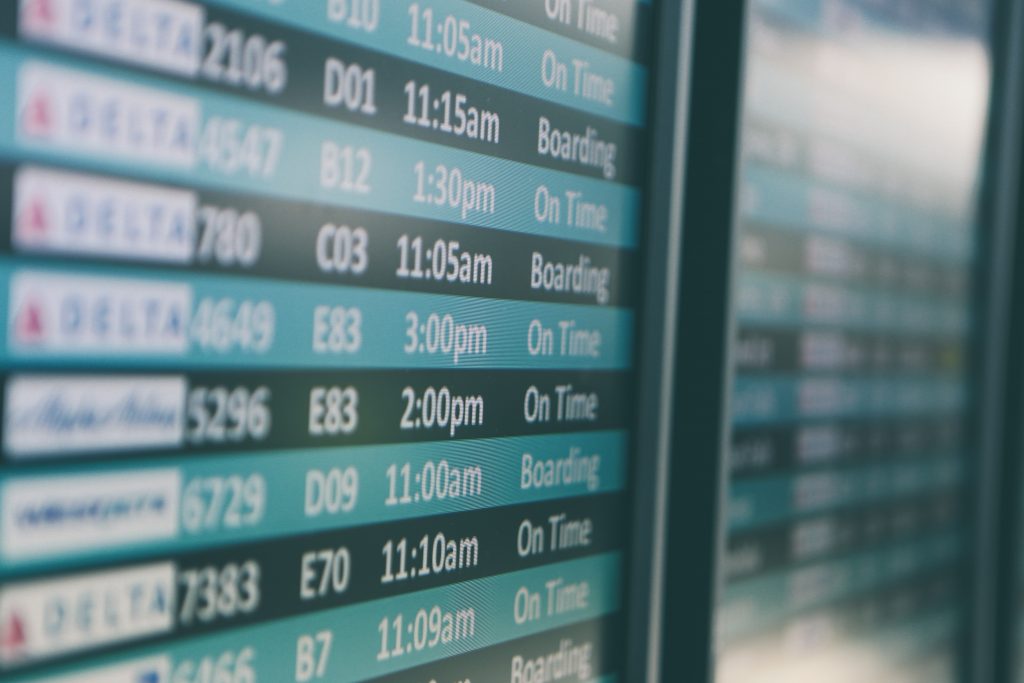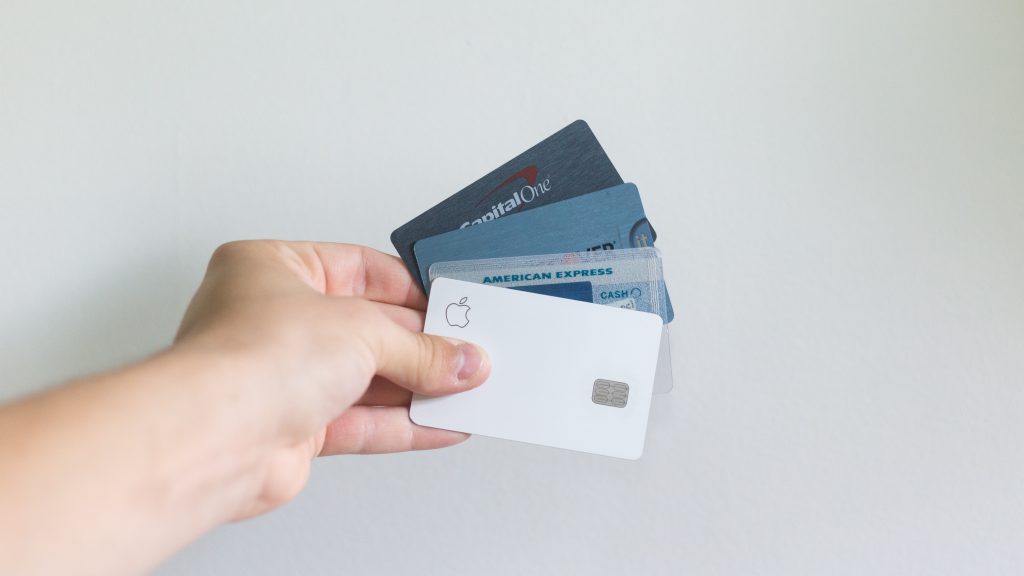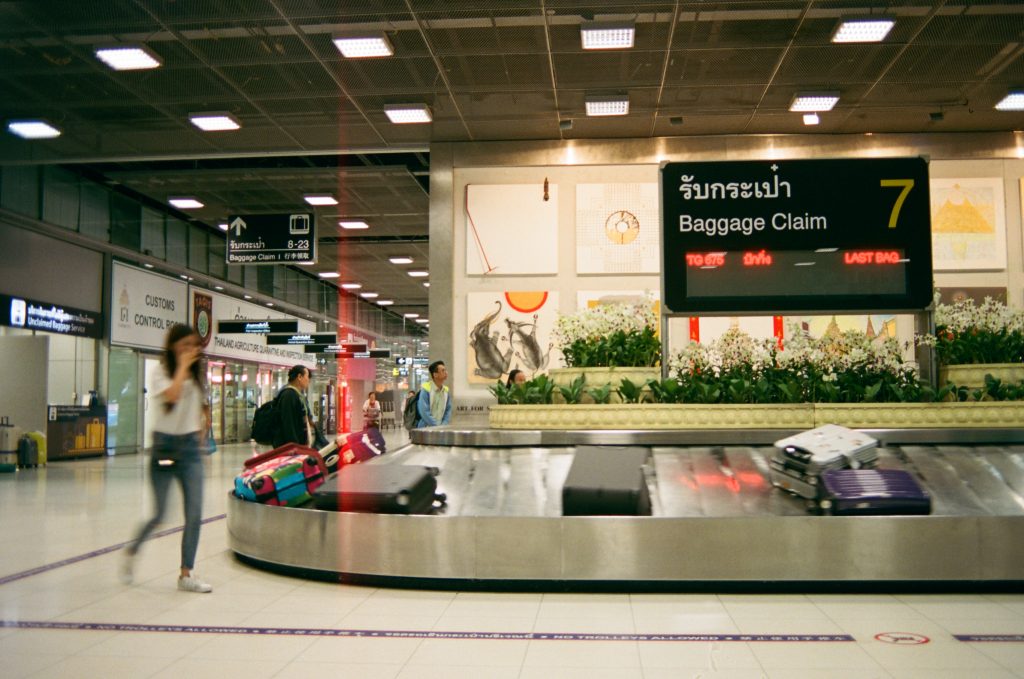As you begin to plan for your New Years’ Resolutions, don’t forget to plan for vacations in the new year!

Table of Contents
Planning a vacation
It is no secret that planning a vacation can be both stressful and expensive. With the rise of inflation, vacations are becoming pricier. However, Military Fares can help you plan an affordable and stress-free vacations. We offer special military prices airfare that can save you hundreds of dollars. We also offer exclusive discounts on hotels, cruises and more.
The average vacation for two people in the United States costs approximately $3,156. The average vacation to Europe for two people, on average, can cost $4, 000. Of those who traveled over the holidays, 82 percent of both millennials and members of Generation Z reported changing travel plans due to inflation. Income-wise, households earning less than $50,000 are changing plans as a result of rising prices.
Prices of some vacation aspects have fluctuated greatly between Thanksgiving 2021 and 2022, according to travel booking website Hopper.

Set a Budget
You’d think you’d want to plan your budget based on your location, but actually the opposite is true. Some places are just much more expensive to get to and stay in than others. So if you begin with your maximum budget, you can narrow down your list of destinations pretty easily.
Of course, it’s often an option to stay somewhere that’s generally expensive for a very low budget if you know how to find the right deals. But this can take a lot of time and know-how. If you’re new to planning and budgeting for a vacation, you’re better off starting with your budget and then planning the details.
Based on your monthly budget: How much can you carve out of your budget on a monthly basis to save for a vacation? Multiply that figure by the number of months between now and when you want to take your vacation, and you’ve got your maximum budget.
Based on your annual income: If you’re in a pretty good place financially, you may be budgeting annually rather than on a monthly basis. In this case, decide what percentage of your annual income you want to devote to a vacation, and set that as your maximum budget.

Calculate Expenses
Some of the biggest expenses that come with taking a trip include transit and accommodations. These are usually the expenses we think to book and plan before a trip. You’ll need to get to and from your destination of choice and find a comfortable place to stay. These are the easiest costs to plan for, and you should include these in your budget.
You can save money by being flexible on your destination choice or making different transit choices like driving a rental car instead of flying.
Some vacation costs don’t occur until after you arrive; you’ll begin to pay for them as you go about your vacation. These costs include food expenses, gas and tolls, and activity and entertainment costs. You may not think of these costs initially, but they can add up quickly. That’s why you’ll want to plan for these costs and include them in your vacation budget.
You can get creative to save money on some of these expenses. For example, buying snacks and essential breakfast items when you first arrive at your destination can help you reduce your total food costs. You can make a grocery store trip to stock up on these items. Try local restaurants while dining out for lunch and dinner to keep things exciting.
When it comes to activity and attraction costs, you can save money by researching before you go. Some attractions may be cheaper on specific dates. Some museums offer discounted tickets on a set weekday or a monthly free entrance day. These kinds of opportunities can help you spend less without sacrificing fun.
Hidden Travel Expenses
Resort fees, which are sometimes called “facility fees” or “destination fees” purportedly cover amenities like internet and pool access. But because the fees are mandatory, they act as hidden costs for booking a room that don’t appear until final checkout.
“Resort fees are the only travel fee that has no correlation to any actual service or product,” says Lauren Wolfe, counsel at Travelers United, an advocacy group for travelers. She’s also the founder of the website Kill Resort Fees. “If your hotel charges for parking, if you don’t have a car, you don’t pay to park. Hotel resort fees, though, are almost impossible to get out of even if you decline amenities.”
Here are some tips to minimize these pesky fees:
- Pay with points at brands that waive resort fees for award stays, like Hilton and Hyatt.
- Ask the front desk to waive the fee. “It is probably not likely to work but you can always ask nicely,” Wolfe says.
- Look for a search option on a hotel website or app to “show rate with taxes and fees” or similar. This will help compare real prices directly and avoid the hassle of clicking through to the final checkout windows.
Airline Fees
Despite a recent uptick, the cost of airfare has actually been dropping for years. That might sound like good news, but that hides a hidden trend: Airlines have been gathering more of their revenue from add-on fees while lowering the base price of airfare.
Charging for seat selection is one of the newest, and most galling, tricks. These fees usually appear during checkout and often seem mandatory.
These fees are almost always avoidable, though. Simply skipping the seat selection process and letting the airline assign a seat at a later date is often the wisest choice if you don’t mind the risk of getting stuck with a middle seat.
Airlines want customers to pay these fees, of course, and often share scary warnings about the dangers of not picking a seat. But skipping seat selection doesn’t increase your chances of getting bumped from a flight.
And note that some airlines, such as Southwest, don’t charge for seat selection.

Cleaning Fees
Everyone wants a clean vacation rental, but nobody wants to pay exorbitant cleaning fees that can exceed the base cost of the rental.
It’s almost impossible to avoid these fees outright, as most properties carry them. But it is possible to avoid paying too much.
Most vacation rental platforms, including Airbnb, offer some option to compare “total price,” which includes cleaning and other fees. It isn’t always easy to filter and sort on total price, but seeing this price on the search screen rather than the checkout screen can vastly simplify comparison shopping.
And note, unlike resort fees — which are usually added to every night booked — cleaning fees are applied once. A $100 cleaning fee might be intolerable for one night but reasonable for 10. So, the best way to avoid cleaning fees on short stays is usually to book a hotel instead.
Instead of worrying about cleaning fees, checkout our website for discounted and special rates for hotels. Military Fares can help you avoid paying cleaning fees.

Save for Your Vacation
If you budget for your trip in advance, you don’t have to spend time stressing over your spending while you’re on vacation. The easiest way to do that is to set up a sinking fund.
Begin by researching the costs of your expected expenditures, such as airfare, rental cars, gas, hotel stays, meals, souvenirs, special excursions and tickets to attractions or events. After totaling those costs, you’ll have an estimation of how much you’ll need to save.
Now work backwards to reach your savings goal. Divide your estimated vacation cost by the number of months you have before taking your trip to figure out how much money to save aside each month. For example, if you’re taking a $2,400 vacation a year from now, you’d need to save $200 a month to fund your getaway.
If your vacation date isn’t set in stone, you could figure out how much you’d like to save monthly and divide your total estimated vacation cost by your monthly savings amount to figure out when you can afford to take your trip. Using the $2,400 vacation example, if you could only afford to save $150 a month, you’d have the funds for your trip 16 months from now.

Automate Savings
It can be difficult to remember every time you’d like to transfer money to your savings. Fortunately, there are plenty of options that’ll automate the process for you—and some will even reward you for it.Most banks will allow you to create a recurring transfer into a dedicated savings account.
Programs like Bank of America’s Keep the Change and Chime’s automatic savings round up the change from your debit card transactions and automatically transfer it over to your savings. Mobile apps such as Acorns act similarly, as they round up your transactions and then invest your savings into the stock market. Take advantage of technology for extra assistance with saving for vacation.
Digit is an app that links up to your checking account and automatically transfers money to your savings account. It uses an algorithm to calculate how much money users can afford to have pulled from their checking account without causing them to overdraft. You can even set a vacation savings goal within the app.
Digit is free to use for the first 30 days, then it’s $5 per month afterward.
Consider Travel Reward Cards
Travel credit cards help you earn valuable points and miles on your purchases. For maximum value, some cards earn rewards not only on travel, but also everyday purchases like dining, groceries and gas. These rewards can then be redeemed for free or discounted flights, hotel stays or to cover other travel-related expenses.
The best travel cards also come with additional features. Even no-annual-fee travel cards are likely to offer perks like sign-up bonuses, intro APR offers and travel insurance. But for top-of-the-line benefits like airport lounge access, elite status and travel credits, expect to pay an annual fee.

Details on Travel Cards
Travel credit cards allow cardholders to earn points or miles on a variety of purchases (typically travel-related), which are redeemable for travel bookings, statement credits, gift cards and more.
The best travel credit cards do more than help you foot the bill for your next flight—travel cards also offer perks to upgrade your entire travel experience. Trip insurance, annual travel credits, concierge services and lounge access are all common benefits. Airline and hotel co-branded credit cards sometimes offer specific discounts and perks for loyalty program members.
A travel credit card is almost always a good idea if you want to offset the cost of future travel. If you are able to save up airline miles, rack up points for free nights at hotels or get discounted travel through your credit card issuer, you’re on your way to saving significantly on travel costs. The right travel card will vary depending on your travel habits, but there is at least one that can fit your travel style and budget.
One of the best ways to get yourself closer to that free flight or hotel stay is to apply for a new travel credit card and meet the spend threshold to get the introductory bonus. And these bonuses can really make those annual fees worth it.
For example, the The Platinum Card® from American Express is currently offering a 100,000-point bonus after $6,000 in spending within the first six months. And while this card has many other benefits that make the $695 annual fee worth it, consider that you could transfer points from the bonus to Iberia Airlines for a roundtrip business class ticket from Chicago to Madrid (a $3000-$6000 value) or to Marriott’s Bonvoy program for a four-or-five-night stay at the Le Meridien Maldives (a $2,500-$2,500 value).
Travel Perks
Anyone that travels often (or even occasionally) can appreciate rewards like lounge access or airline/hotel elite status. Many travel credit cards come with these perks, which can make long layovers and hotel stays much more pleasant.
Plus, these benefits can save you money. After all, lounge access or even just buying food at the airport doesn’t come cheap. Some cards, like the Chase Sapphire Reserve®, have an annual travel credit, meaning that you’re automatically credited $300 per year once you spend that on travel. Many cards offer Global Entry or TSA PreCheck statement credits or airline fee credits.
With a credit card that offers elite status, expect to travel easily and stay in added comfort for less money. Hotel elite status comes with perks like free room upgrades, late checkout, food credits and free breakfast. Airline elite status awards you privileges like checking bags for free, the possibility of upgrades and early boarding.
Use Your Military Travel Discounts
TSA Pre-Check
If Space-A travel isn’t right for your plans, take advantage of TSA PreCheck® to make things a little easier when flying commercial. Simply use your Department of Defense ID as your known traveler number. You’ll bypass long security lines without removing your shoes or jacket or having to take your laptop out of your bag. Family members under the age of 12 can pass through expedited screening with you.
Travel benefits for college students
Military dependents enrolled in colleges away from an active-duty parent’s OCONUS duty station are eligible for travel benefits. The government will pay for one round trip each fiscal year for college students if they meet certain requirements. This travel benefit must be authorized through the service member’s command and be completed through the military travel office. See the travel coordinator on your installation for more information.

Baggage

Alaska Airlines
Alaska Airlines offers active duty military up to five free checked bags. This discount also applies to military dependents on travel orders.
Allegiant
Allegiant offers active duty military, Reservists and National Guard up to three pieces of checked baggage free and no charge for oversized checked baggage. Spouses and dependents also get up to three pieces of checked baggage free, although the weight limit per bag is 40 pounds as opposed to 100 pounds for service members.
American Airlines
Active duty military personnel traveling on orders can check up to five complimentary bags (up to 100 pounds). When traveling for pleasure, you can check up to three complimentary bags (up to 50 pounds). Military dependents traveling on orders have the same privileges as military personnel.
Delta Airlines
Active duty military personnel and their dependents traveling on orders (including Leave Orders) may check up to five bags in Delta One/First class and four bags in Main Cabin on any Delta or Delta Connection as free allowance for both domestic and international travel. The bag weight limit is 70 pounds. For personal travel, active military may also check up to two bags weighing 50 pounds or less.
Jet Blue
Active military personnel and their dependents traveling on military orders are allowed to check five bags at no additional cost. Dependents do not have to travel with the active military personnel.
Active military personnel and their dependents traveling for leisure are allowed to check two bags at no additional cost. Dependents must travel on the same PNR or same flight as the active military personnel.
Leave and PTO
Active duty Soldiers earn 2.5 days of annual (chargeable) leave for each month of service, for a total of 30 days per year. Currently, Soldiers can bank up to 60 days of leave at the end of the fiscal year. Any additional days above 60 days are forfeited at the beginning of the next fiscal year (October 1). Each Soldier has an individual responsibility to monitor and manage their leave. Current leave balances are recorded on the Leave and Earnings Statement (LES) which can be viewed at myPay.
If you are planning a big vacation you can take passes which are restricted to no more than four days instead of taking leave. If you use a pass instead of taking leave days you can save for your leave for your big vacation. Reminder that depending on your service component there designated days that you can take a pass.

Special Leave Accrual
Soldiers serving in hostile fire or imminent danger pay areas (combat zone) for 120 days or more can accumulate and carry over up to 120 days of leave (60 days of ordinary leave, plus 60 days of SLA) into the next fiscal year. SLA-protected leave appears in the Remarks section of Leave and Earnings Statements (LES) as “Combat Zone LV Carryover Bal” along with the expiration date.
SLA protection ends either on the expiration date or when a Soldier’s current leave balance (Cr Bal) drops to 60 days or less. SLA days cannot be sold and are lost if not used before their expiration date. By law, 120 days is the maximum leave that can be carried over into a new fiscal year with SLA protection. SLA is the only mechanism by which more than 60 days can be carried over into a new fiscal year. If you have been deployed or have any other circumstances that prevented you from taking leave, check to see if you qualify for SLA
PTO
Most of the time, you’ll hear the phrases PTO and vacation time interchangeably, but they are not, in fact, the same thing. When you take vacation time (even if it’s used for a staycation), you are taking a form of PTO, but PTO can be used for a variety of different reasons other than for taking a vacation.
PTO can be used to take vacation, to care for a loved one, to take the dog to the vet or something else entirely. PTO is often accrued over time, with hours earned and put into a bank based on hours already worked. To use PTO, you essentially take away hours from that earned bank of hours. To use your PTO for one day, you’d be using eight hours of PTO. PTO is often accrued over time, with hours earned and put into a bank based on hours already worked. To use PTO, you essentially take away hours from that earned bank of hours. To use your PTO for one day, you’d be using eight hours of PTO.
